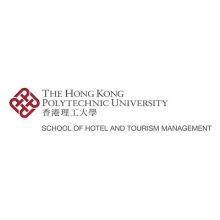World University Rankings by Subject 2025: Physical Sciences
Top Physical Sciences school rankings 2025: Leading universities for Physics, Chemistry, Mathematics and Statistics
Discover the Physical Sciences Rankings results with the definitive Times Higher Education Subject Rankings 2025.
Highlights in the Physical Sciences Subject Rankings 2025
- The top six universities for Physical Sciences are all in the US, with California Institute of Technology retaining first place for disciplines including mathematics
- Stanford University, ranked at joint second, leads the world in research quality for subjects such as Physics
- The National University of Singapore is the first university in Asia to join the top 10 in Physical Sciences, with a world-leading performance in industry
- China edges closer to the top 10 with Peking at 11th and Tsinghua at joint 12th, both improvements on last year
- The highest new entrant is King Saud University in Saudi Arabia, in band 151-175
The Physical Sciences table evaluates universities across several core disciplines: Physics, Chemistry, Mathematics, Statistics, Astronomy, Geology, and Environmental, Earth and Marine Sciences. This year’s rankings include 1,447 institutions from 107 countries and territories, which have been assessed based on 18 rigorous performance indicators.
Physical Sciences disciplines assessed in the 2025 Rankings
- Chemistry: encompassing crystallography, nanotechnology and polymer science
- Physics and Astronomy: including astrophysics and acoustics
- Mathematics and Statistics: covering operations research and management science, and decision maths
- Geology, Environmental, Earth and Marine Sciences: including paleontology and meteorological and atmospheric sciences
Learn more:
The Physical Sciences subject table uses the same trusted and rigorous performance indicators as the Times Higher Education World University Rankings 2025, but the methodology has been recalibrated to suit the discipline.
Our detailed 2025 Subject Rankings methodology, trusted worldwide by students, teachers, academics, governments and industry experts, is based on:
- 157 million citations
- 18 million research publications
- Survey responses from more than 93,000 scholars globally
Our analysis shows that, despite their success elsewhere, Asia’s leading universities are still struggling to compete globally in arts and humanities.
To unlock the data behind THE’s rankings and access a range of analytical and benchmarking tools, visit our data and insights page.
| Rank | Name Country/Region | Overall | Research Quality | Industry | International Outlook | Research Environment | Teaching |
|---|











